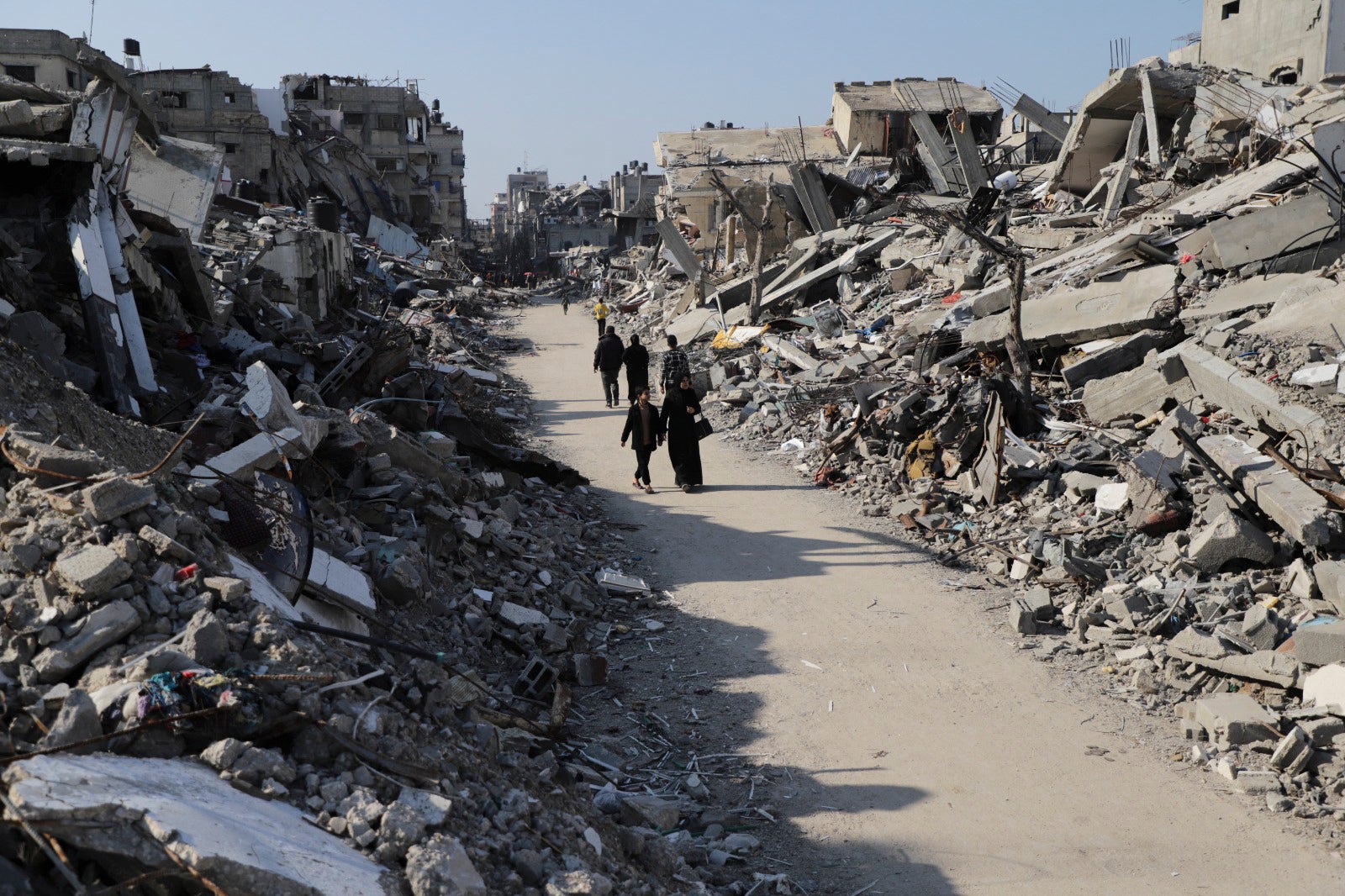Hope for new Gaza ceasefire deal hangs in the balance as Israel boycotting talks
Israeli representatives were not in attendance after Hamas failed to respond to their demand for a hostage list

Your support helps us to tell the story
From reproductive rights to climate change to Big Tech, The Independent is on the ground when the story is developing. Whether it's investigating the financials of Elon Musk's pro-Trump PAC or producing our latest documentary, 'The A Word', which shines a light on the American women fighting for reproductive rights, we know how important it is to parse out the facts from the messaging.
At such a critical moment in US history, we need reporters on the ground. Your donation allows us to keep sending journalists to speak to both sides of the story.
The Independent is trusted by Americans across the entire political spectrum. And unlike many other quality news outlets, we choose not to lock Americans out of our reporting and analysis with paywalls. We believe quality journalism should be available to everyone, paid for by those who can afford it.
Your support makes all the difference.A Gaza ceasefire deal is understood to be close as crunch talks continue in Egypt after five months of bloody fighting in the strip of land.
Despite this, Israeli diplomats boycotted the discussions in Cairo after Hamas reportedly rejected its demand for a complete list naming hostages that are still alive.
Washington has insisted the deal is close and should be in place ahead of the holy festival of Ramadan on 10 March.
But three officials speaking on the condition of anonymity have said the government is also waiting to hear how many Palestinian prisoners the terror group seeks to exchange for each hostage.

A Hamas official told CNN that certain terms of the deal made it “highly unlikely” any plan would be agreed in the next 48 hours, despite Israel agreeing to the proposed frameworks in Paris in late February.
The conditions that Hamas are demanding include a permanent ceasefire and the withdrawal of Israeli troops from the Gaza Strip.
The current proposed deal includes a six-week ceasefire deal, which could have the potential to be extended, and will ensure an increase in aid supplies reaching Palestinians, who are on the brink of famine.
Attending the talks are also representatives from Qatar and the US, with President Joe Biden envisioning a revamped Palestinian leadership running the enclave with a hope of eventual statehood.
This aim is opposed by Israel’s Benjamin Netanyahu and hardliners within his government. Since the outbreak of war, the prime minister has faced a drop in his popularity, with many Israelis holding him responsible for failing to stop the 7 October Hamas incursion, which killed 1,200 people.

Around 250 people were taken as hostages, including women, children and the elderly, with several killed in the subsequent bombardment of Gaza.
The Hamas-run health ministry has said that 30,000 Palestinians have been killed in the fighting, since the Israeli Defence Forces invaded the region.
Around 80 per cent of the population of 2.3 million have fled their homes, and UN agencies say hundreds of thousands are on the brink of famine, with deliveries of aid frequently blocked or held at the Egypt border.
On Sunday, Israel’s military said that the majority of Palestinians killed last week died in a stampede after crowds massed near an aid envoy.
However, local health officials said casualties, which were more than 100 people, were brought into hospitals having been hit by large-calibre ammunition.

Several countries have now called for a UN inquiry, while Israeli officials have dismissed the figures given but have not offered any estimates of their own.
On Sunday, Israel’s main military spokesperson Rear Admiral Daniel Hagari, announced the result of a preliminary review which repeated earlier Israeli statements that most of those killed had been trampled underfoot as crowds rushed the aid trucks.
In addition, “several individuals” were targeted as troops fired on people who approached them in the aftermath in a manner that suggested an immediate threat, he said, adding that an independent inquiry had been opened but giving no details.
This comes as the US completed its first airdrop of humanitarian aid yesterday, delivering 66 pallets containing 38,000 meals, which was criticised as inadequate by charitable organisations operating in the area.
Join our commenting forum
Join thought-provoking conversations, follow other Independent readers and see their replies
Comments